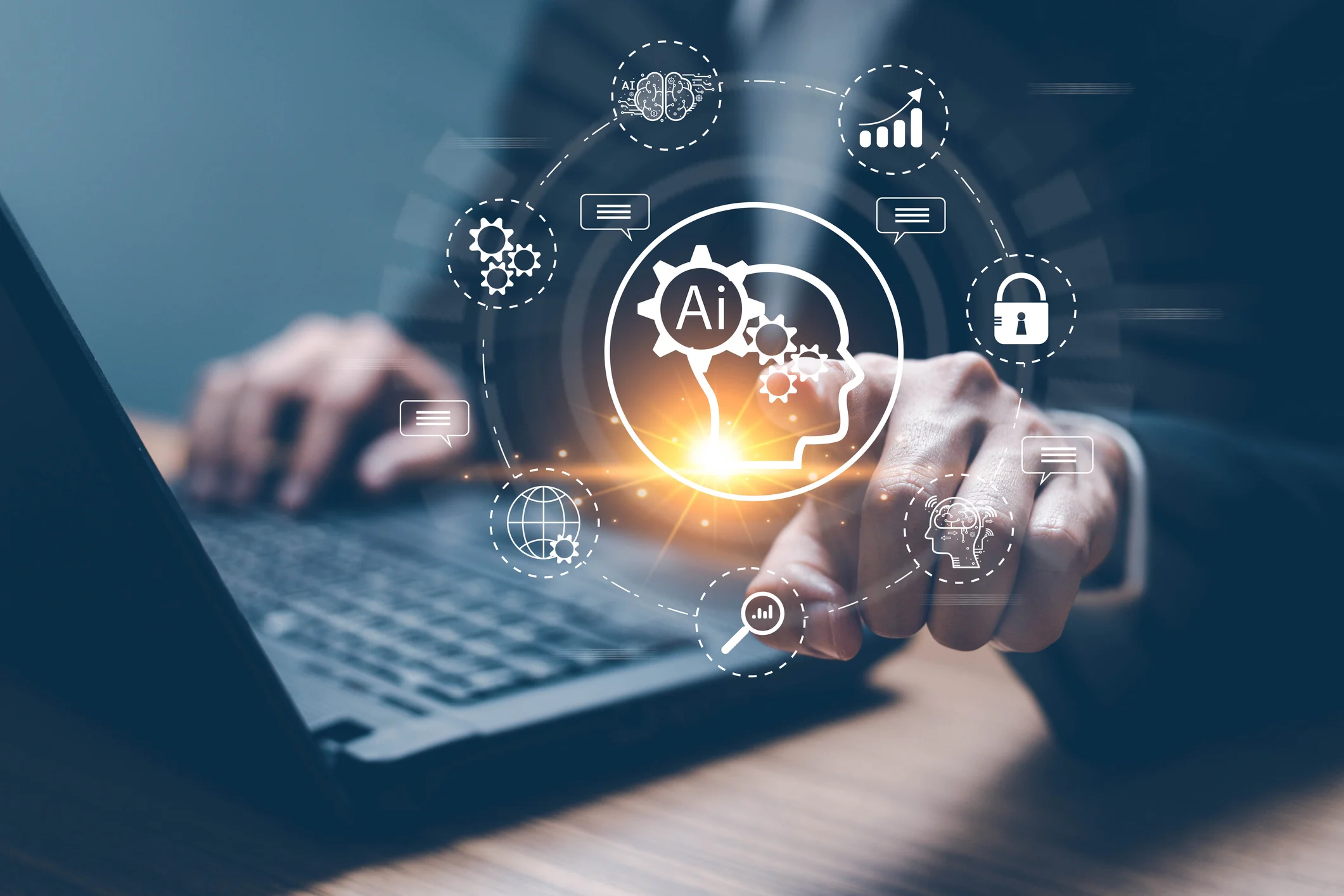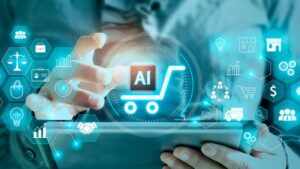AI can increase marketing ROI by improving team performance and campaign personalization, and by providing data-driven decision making.
AI automates repetitive marketing tasks to streamline marketing campaigns and reduce human error, freeing marketers up to focus on strategic activities that create value for customers.
However, companies can become too dependent on technology and fail to strike an equilibrium between automation and human oversight.
1. Predictive Analytics
Predictive analytics is an advanced form of data analysis that utilizes historical and current data to predict future trends, outcomes and performance. Marketing professionals use predictive intelligence to create tailored campaigns that meet their audience’s specific needs.
Machine learning algorithms employing data mining techniques are used to detect complex correlations among various variables and increase predictive models’ accuracy. Furthermore, anomaly detection algorithms help detect any nonconforming patterns which do not conform to expected behavior – an invaluable asset when performing fraud prevention or equipment failure prediction tasks.
Utilizing predictive analytics, marketers can make more informed decisions regarding their campaign strategies and optimize efforts in order to maximize return on investment (ROI). Saving both time and resources through automation allows businesses to save both time and resources while freeing up resources for more strategic projects that give an edge over their competition. Integrating predictive analytics into marketing campaigns allows companies to anticipate customer behaviors and needs and deliver tailored experiences that strengthen brand loyalty for lasting customer retention and revenue growth. Predictive analytics in marketing can also assist businesses in providing more accurate forecasts of customer demand, which is essential in planning inventory and resource allocation. Forecasting sales volume is especially helpful in supply chain management as this allows the management team to ensure product availability while also preventing stock outs.
2. AI-Powered Automation
AI automation frees human marketing managers up from tedious tasks and allows them to focus on more important work. AI-powered tools can analyze data faster, execute campaigns quickly, monitor real-time progress and provide instantaneous feedback instantly, optimize budgets based on performance and ROI, and more.
These efficiencies allow marketers to focus on creating engaging content while meeting business goals while remaining cost competitive and on track with overall business strategies. AI can assist marketers by creating and pre-filling a content calendar, suggesting content pillars, defining brand voice and even creating initial drafts; freeing up time for more creative tasks within their department.
AI-driven automation can also serve as an effective customer service tool, efficiently responding to consumer inquiries while streamlining processes. Sentiment analysis can also assist marketers in understanding social media posts and consumer feedback, helping them proactively address any potential issues or enhance the customer experience. However, these technologies may raise ethical concerns around privacy and personalization when used for digital marketing purposes. With these concerns in mind, marketers must be transparent with their use of AI technologies and ensure they collect only necessary information from individuals. Furthermore, marketers must seek consent and adhere to regulations in order to foster customer trust. Ultimately, AI-powered automation works best when its human interaction creates an engaging customer experience that provides authentic value.
3. Machine Learning
Machine learning is a branch of AI that uses data and information to make predictions about the future. It analyzes past behavior and purchases to predict consumer needs as well as future sales and customer lifetime value (CLV).
Machine learning in marketing provides marketers with a means of quickly and accurately identifying key performance indicators and optimizing campaigns for maximum impact and return. Furthermore, AI allows teams to work more efficiently by automating repetitive tasks allowing more time for strategic planning and creative efforts – ultimately increasing productivity, efficiency and revenue growth.
Marketers can utilize various predictive analytics, data analysis, automation, and machine learning-powered tools for predictive analytics, data analysis, automation, and more. A chatbot or virtual assistant could instantly answer customers’ queries or guide them through the customer journey; or websites could dynamically adapt content based on customer browsing behavior — for instance if someone recently looked up wireless headphones they might see product recommendations displayed prominently on the homepage.
Machine learning can also help streamline the process of analyzing data and making decisions by quickly recognizing patterns and trends, saving both time and energy in the process. This approach is particularly useful when working with large data sets with thousands of variables. Furthermore, machine learning has applications in image recognition for faster image categorization as well as text-based marketing such as creating and optimizing email subject lines or content generation.
4. Artificial Intelligence
Artificial intelligence can perform tasks that would be challenging or impossible for humans — such as processing large volumes of data, providing cybersecurity functions, assembling vehicles or computers, and interpreting images. This enables humans to focus their work more productively in customer service or strategic decision-making tasks, while decreasing human error risks through automating repetitive time-consuming tasks – which in turn improves operational efficiency while saving both money and lives when human errors prove costly or dangerous.
Machine learning (ML) can be applied across both digital and physical business processes, from online searches and targeted advertising campaigns to automated translation services such as Google Translate or Microsoft Translate; face recognition on smartphones or social media platforms like TikTok; data mining and predictive modeling. Machine learning identifies patterns that humans might miss, providing recommendations based on these insights; it can even predict future outcomes based on historical trends; this might include how long an appliance might last before needing repairs or the likelihood of certain accidents occurring.
Generative AI, which creates new text or image content through machine learning algorithms, has become an increasingly popular form of disruptive technology. If uncontrolled however, this disruptive tech can produce offensive or biased material which may even violate laws. To mitigate such outcomes organizations can implement governance structures to oversee development, deployment and outcomes of Gen AI models; transparency may help users understand its strengths and limitations more readily.




